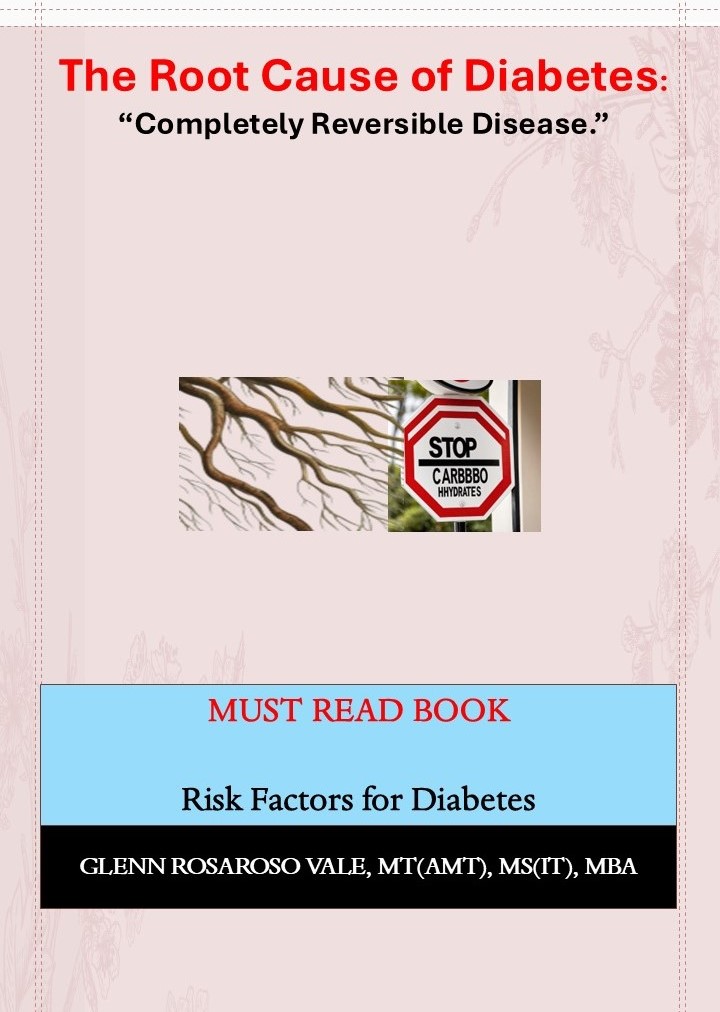"Uncover the truth behind the groundbreaking discovery of the causes of the world's biggest problems. 'The Root Causes' will change how you view the world!"
Exploring the Possibility: Can Diabetes Be Reversed?
Understanding Type 2 Diabetes Type 2 diabetes, a chronic condition that affects the way the body processes blood sugar (glucose), is a growing concern worldwide. It occurs when the body becomes resistant to insulin or when the pancreas fails to produce sufficient insulin. As such, managing blood glucose levels becomes crucial for affected individuals. However, a pressing question arises: can diabetes be reversed? Lifestyle Changes: A Key to Reversal Recent studies indicate that significant lifestyle changes can lead to the remission of type 2 diabetes. The cornerstone of these changes includes adopting a healthy diet, engaging in regular physical activity, and achieving a healthy weight. For instance, incorporating a diet rich in whole grains, fruits, vegetables, and lean proteins can significantly enhance insulin sensitivity. Additionally, weight loss—specifically losing 5-10% of body weight—has been shown to positively impact blood sugar control.
DISEASES
Glenn Rosaroso Vale, BSMT, MS(IT), MBA
12/2/20243 min read


Understanding Type 2 Diabetes and the Path to Reversal
Type 2 diabetes is a chronic condition that disrupts the body's ability to process blood sugar (glucose) properly. It occurs when the body either becomes resistant to insulin or when the pancreas is unable to produce enough insulin to maintain normal blood sugar levels. As a result, individuals with type 2 diabetes often struggle with elevated blood sugar levels, which, if left unmanaged, can lead to various complications. Given the growing prevalence of the condition worldwide, a common question arises: Can type 2 diabetes be reversed?
Lifestyle Changes: The Key to Reversal
Recent research has shown that significant lifestyle changes can lead to the remission of type 2 diabetes, meaning that blood sugar levels return to normal without the need for medication. These changes primarily focus on diet, exercise, and weight management.
1. Diet: Eating to Improve Insulin Sensitivity
The cornerstone of managing and potentially reversing type 2 diabetes is adopting a healthy, nutrient-dense diet. A diet that contains minimal amounts of carbohydrates, specifically 4 grams of whole grains per serving, along with low-glycemic fruits, vegetables, and lean proteins, can have a significant impact on improving insulin sensitivity. The aim is to stabilize blood sugar levels by eating foods that don’t cause rapid spikes in glucose.
Including a variety of vegetables, healthy fats (such as olive oil and avocado), and lean proteins (such as fish, chicken, and legumes) is crucial in supporting blood sugar control. Additionally, limiting refined sugars and processed foods is essential, as they contribute to insulin resistance and poor blood sugar regulation.
2. Weight Loss: A Powerful Tool
Losing weight plays a pivotal role in the management and potential reversal of type 2 diabetes. Studies have shown that losing 5-10% of body weight can lead to significant improvements in blood sugar control. Achieving and maintaining a healthy weight through diet and exercise helps reduce insulin resistance, thereby allowing the body to use insulin more effectively.
3. Avoiding Toxins: Minimizing Exposure to Harmful Chemicals
For individuals with type 2 diabetes, avoiding toxins such as seed oils, sweeteners, MSG, herbicides, pesticides, microplastics, and phthalates is also beneficial. These substances may contribute to inflammation and worsen insulin resistance. Choosing whole foods and reducing exposure to environmental toxins can help reduce the strain on the body’s systems and improve overall health.
Medical Interventions and Solutions
In addition to lifestyle modifications, medical interventions can play a role in managing or potentially reversing type 2 diabetes. Medications, such as metformin, are commonly prescribed to help regulate blood sugar levels. While these medications are effective in managing the condition, they are not a cure. Bariatric surgery, or weight-loss surgery, has also shown promise in achieving diabetes remission for many patients. This surgical option has been found to improve insulin sensitivity and promote significant weight loss, leading to better blood sugar control.
However, it’s important to emphasize that while medical interventions can be effective in managing diabetes, they work best when combined with sustained lifestyle changes. The long-term success of managing type 2 diabetes depends on the individual’s commitment to adopting and maintaining healthy habits.
Conclusion: A Path Toward Remission
In conclusion, the possibility of reversing type 2 diabetes is achievable for many individuals, but it depends on a combination of factors, including dedication to a healthier lifestyle and, in some cases, medical interventions. By embracing dietary changes, regular physical activity, and weight management, individuals with type 2 diabetes may see significant improvements in their blood sugar levels. Additionally, medical treatments like medication and bariatric surgery can complement these efforts, but lifestyle changes remain critical for long-term success.
By taking proactive steps toward better health, individuals living with type 2 diabetes can improve their chances of remission, leading to a healthier future and a significant reduction in the risks associated with the disease. With the right approach, reversing type 2 diabetes is not only possible but achievable for many people.
Health
Understanding illness to empower your well-being journey.
Wellness
Knowledge
info@rootcauseprevention.com
903-268-6664
© 2024. All rights reserved.
grfv@sbcgloal.net

